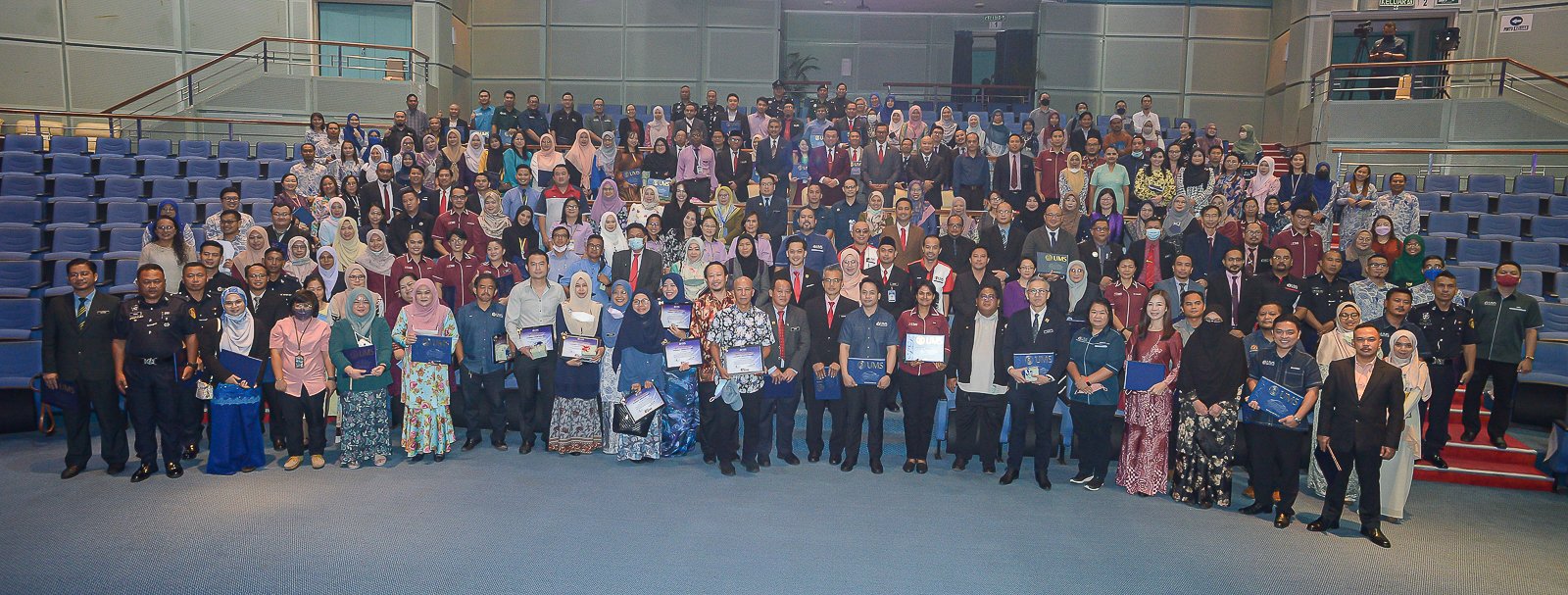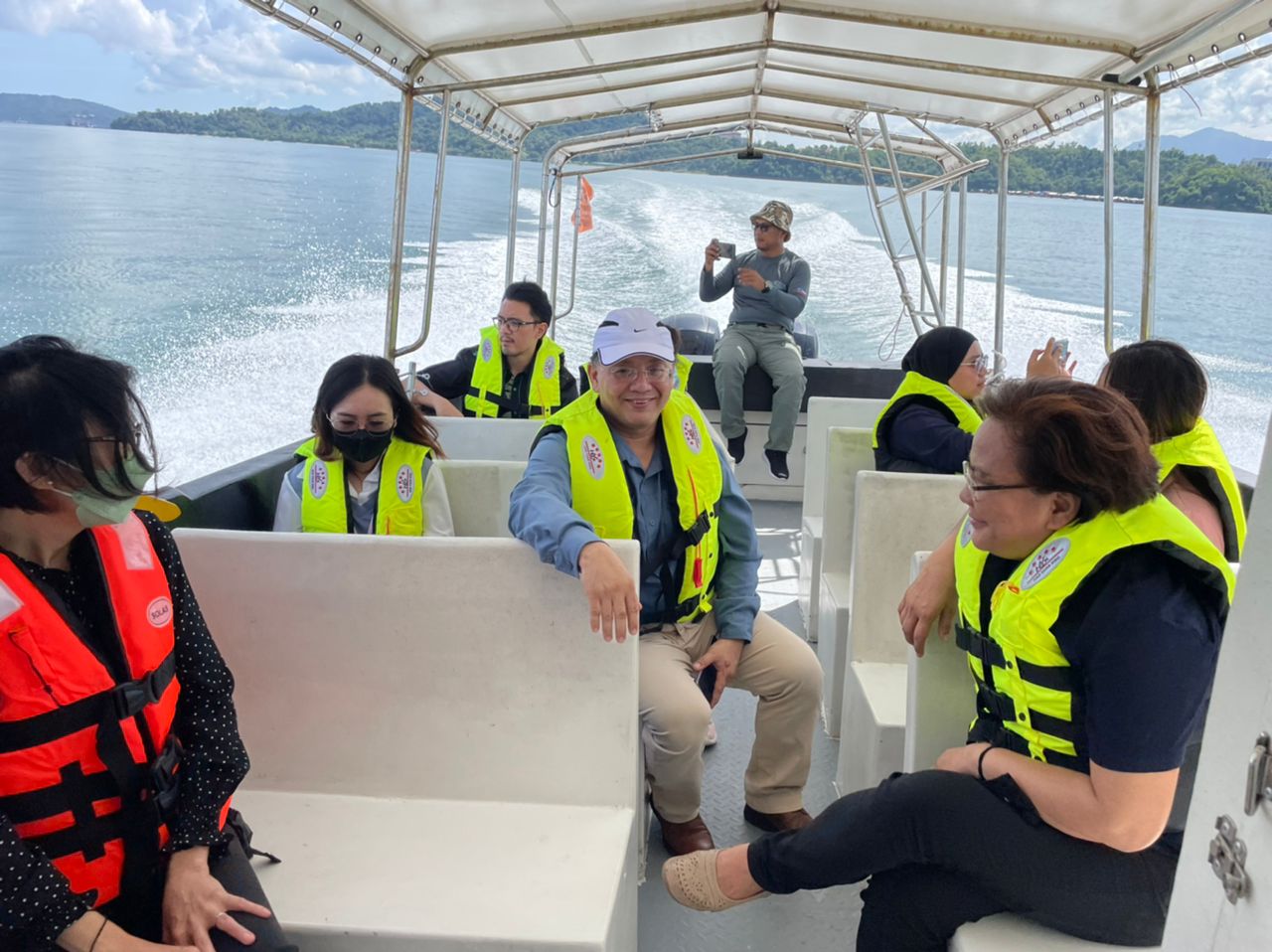 KOTA KINABALU: Universiti Malaysia Sabah (UMS) is working with two other partners on a project to bring recreational fishing to a more wholesome and exciting level, while also contributing to science and sustainable development.
KOTA KINABALU: Universiti Malaysia Sabah (UMS) is working with two other partners on a project to bring recreational fishing to a more wholesome and exciting level, while also contributing to science and sustainable development.
UMS and its partners, Sabah-based start-up company ReeFish and World Wide Fund for Nature Malaysia (WWF-Malaysia), launched the project based on the "build back better" concept at the UMS jetty here on Thursday (Sept 8).
The importance of science for sustainable blue foods – a collective term for aquatic foods such as fish, shellfish and seaweed – has been catapulted into focus following the economic uncertainties in the wake of the Covid-19 pandemic.
Thus, a blue economy will help Sabah meet its sustainable development goals, particularly in fisheries (fish and seafood production) and marine tourism.
Dr Mabel Manjaji Matsumoto, the project's lead researcher, said their focus will be on marine anglers.
"The research will take on multiple approaches in our profiling of recreational fishery, from appraising the status of recreational fishing in Sabah to addressing the issue of illegal, unreported, and unregulated (IUU) fishing contributed by angling activities," she said in a statement.
"One approach is through engaging citizen scientists for their input," added Matsumoto, who is also an associate professor at the Borneo Marine Research Institute, UMS.
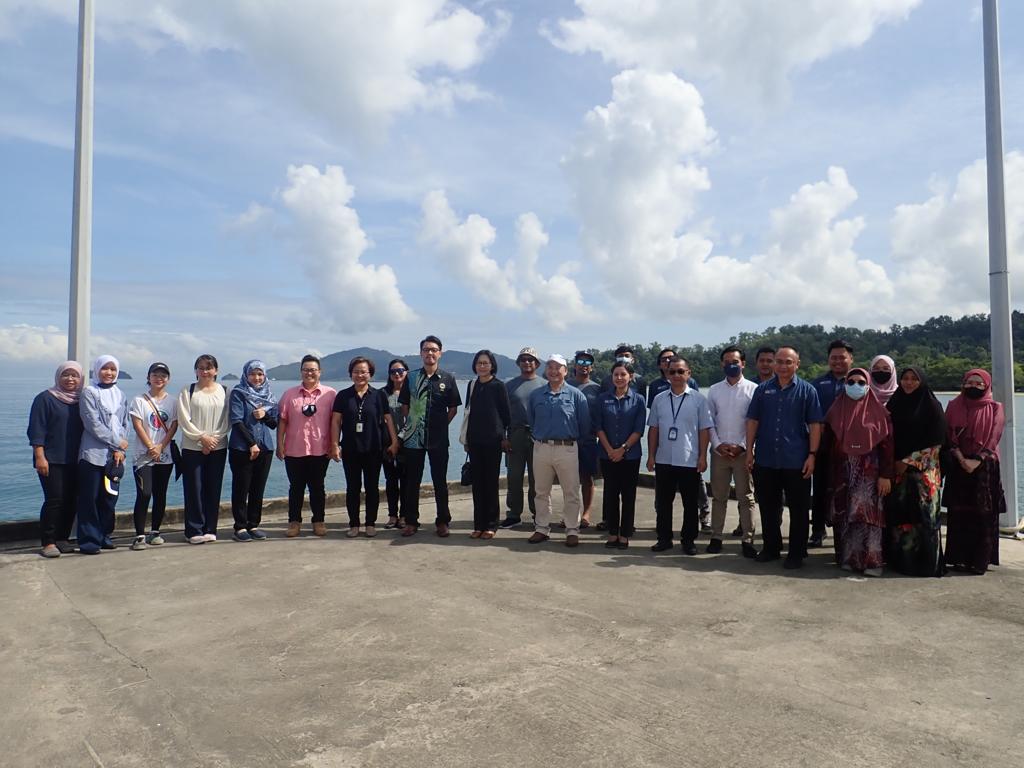
WWF-Malaysia conservation head in Sabah Dr Robecca Jumin said globally, the potential to expand and benefit from recreational fishing was plentiful as it stimulates a nation's economic development in more than one way.
"In this collaboration, we want to explore responsible recreational fishing as a potential Covid-19 blue recovery livelihood for local stakeholders.
"We would like to develop sustainable opportunities in recreational fishing based on the build back better concept.
"This concept is part of disaster management and importantly, promotes nature-based solutions to conserve biodiversity and restore ecosystem services," she said.
ReeFish founder Datuk Darrel Webber elaborated that the project's website is created to promote responsible angling and to create an avenue for the anglers to record their memorable experience by uploading footage, which at the same time, contribute to citizen science efforts.
The footage will be collated as information and passed on to UMS fisheries scientists to be analysed, he added.
Sabah enjoyed a tremendous boom in the tourism sector prior to the pandemic, he said.
ReeFish is a locally owned start-up which aims to provide access to anglers who want to lend a hand to science and at the same time contribute towards the sustainability of this popular recreational activity.
The research collaboration is supported by funds channelled by WWF-Malaysia, a forefront civil society organisation (CSO).
Borneo Marine Research Institute director Dr Sitti Raehanah Muhamad Shaleh applauded the research project, saying it was commendable especially at a time when there is worldwide concern on marine conservation and that the government was striving to ensure seafood sustainability.
"I also understand that this project will provide an opportunity for the researchers to study shark conservation as sharks are one of the large fishes targeted by some anglers.
"By the end of the year-long project, the team aims to develop a prototype business model incorporating the idea of responsible angling," said Sitti Raehanah.
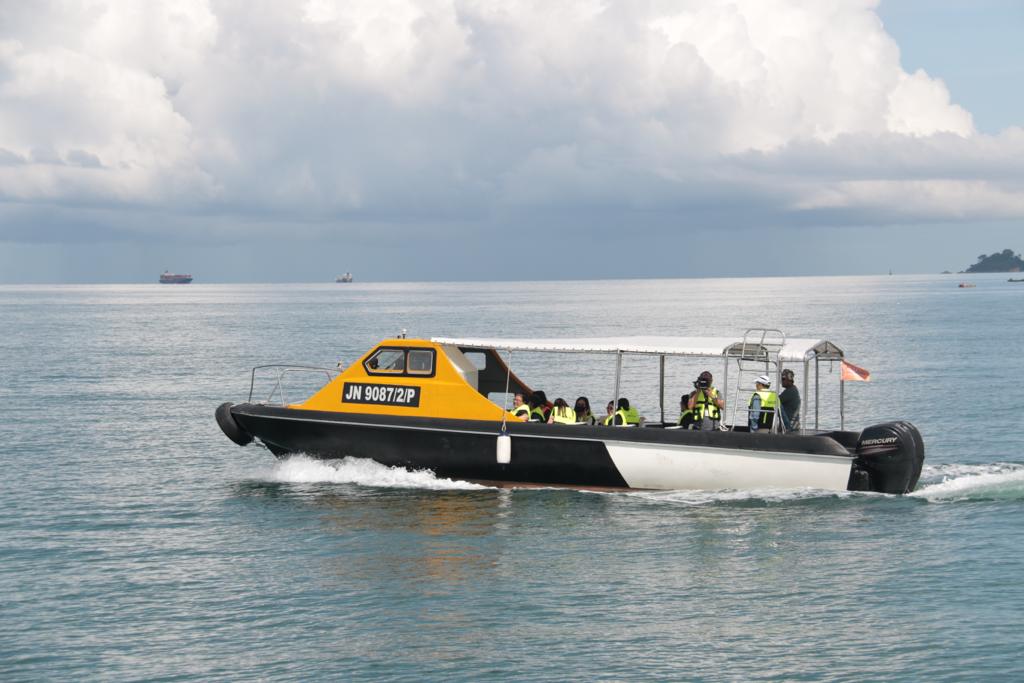



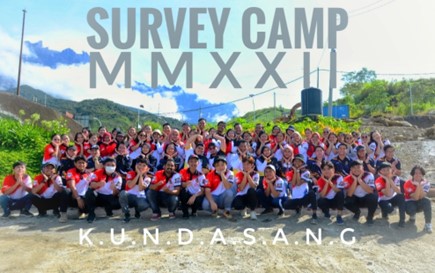 KUNDASANG: Survey Camp 2022 has been participated by a total of 63 students of the Civil Engineering Programme, Faculty of Engineering (FKJ), Universiti Malaysia Sabah (UMS) is an effective medium to practice the knowledge learned theoretically in lectures.
KUNDASANG: Survey Camp 2022 has been participated by a total of 63 students of the Civil Engineering Programme, Faculty of Engineering (FKJ), Universiti Malaysia Sabah (UMS) is an effective medium to practice the knowledge learned theoretically in lectures. KOTA KINABALU: An anesthesiology and critical care postgraduate specialist programme and other clinical programmes are being developed by Universiti Malaysia Sabah (UMS) through its Medical and Science Health Faculty.
KOTA KINABALU: An anesthesiology and critical care postgraduate specialist programme and other clinical programmes are being developed by Universiti Malaysia Sabah (UMS) through its Medical and Science Health Faculty.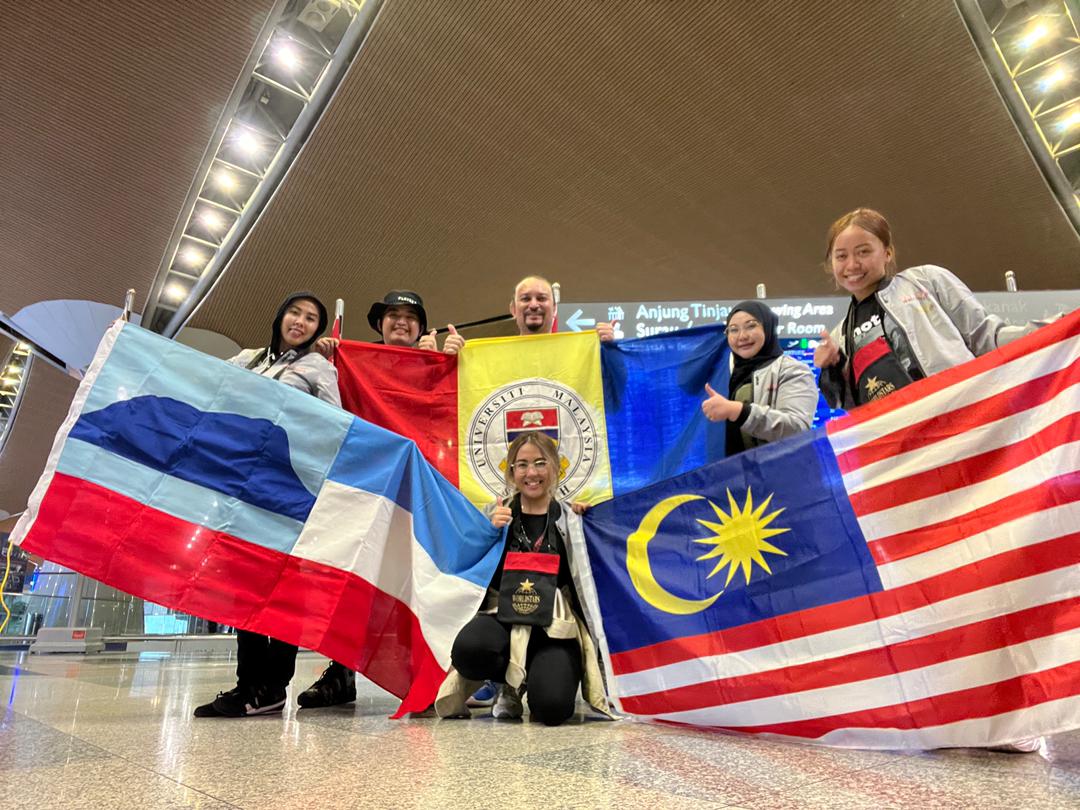 KOTA KINABALU: Six students and staff from Universiti Malaysia Sabah (UMS) are representing Malaysia in the World Championships of Performing Arts (WCoPA) in Los Angeles, United States of America (USA).
KOTA KINABALU: Six students and staff from Universiti Malaysia Sabah (UMS) are representing Malaysia in the World Championships of Performing Arts (WCoPA) in Los Angeles, United States of America (USA).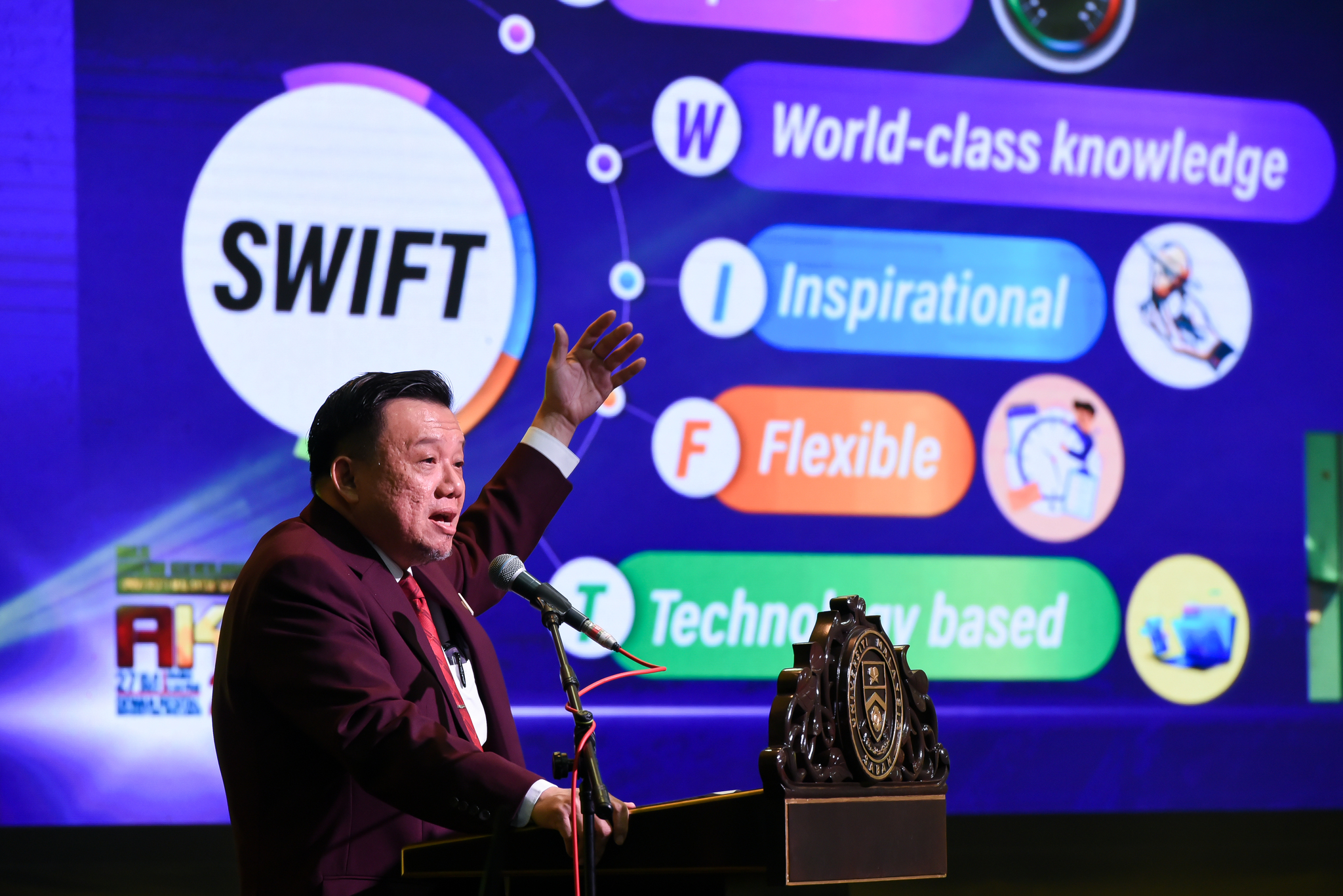 KOTA KINABALU: A total of 555 Universiti Malaysia Sabah (UMS) celebrated 555 of its staff and retirees at the UMS Excellence Awards (AKU) 2022 event held at the Dewan Resital on Wednesday.
KOTA KINABALU: A total of 555 Universiti Malaysia Sabah (UMS) celebrated 555 of its staff and retirees at the UMS Excellence Awards (AKU) 2022 event held at the Dewan Resital on Wednesday.